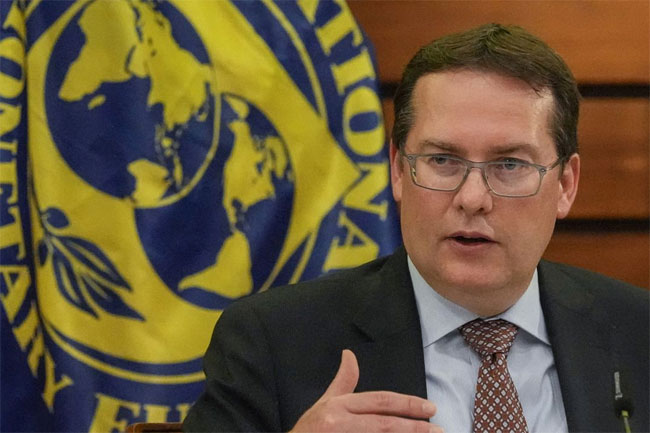
IMF Team to Assess SL’s Economic Reforms amidst Recent Policy Changes
- CNL Reporter
- November 17, 2024
- News
- Economic Reforms, IMF Team, IMF Team to Assess SL's Economic Reforms amidst Recent Policy Changes
- 0 Comments
Behind the News
A team from the International Monetary Fund, headed by Senior Mission Chief Peter Breuer, will be visiting Colombo between November 17 and 23 for the third review of Sri Lanka’s economic reform program under the Extended Fund Facility of the IMF.
The review would lie with an assessment of the government’s economic policies, especially in terms of recent adjustments, and the next installment of the loan release.
The expected key areas the third review is supposed to cover include:Fiscal Adjustments: The review of fiscal measures, both on the revenue and expenditure sides;Structural Reforms: The privatisation commitments and recent policy reversals;Debt Restructuring: Progress under the debt restructuring process after the previous agreements.
A team led by Krishna Srinivasan, Director of the IMF’s Asia Pacific Department, visited Sri Lanka in October 2024 and discussed the forthcoming review with President Anbura Kumara Dissanayake and Prime Minister Harini Amarasuriya, amongst others.
The IMF praised the commitment of the government to reforms, amidst resistance in bringing the budget in line with the IMF targets and retaining economic stability.
Sri Lanka, rebounding after an economic crisis in 2022, has already secured three tranches of $360 million each. However, risks to the recovery include a deceleration in reform momentum, regional conflicts, instability in commodity prices, and delays with debt restructuring.
The IMF mission has underscored the modernization of monetary policy in Sri Lanka through a shift to flexible inflation targeting, which includes structural and economic reforms.
Such reforms involve the phasing out of monetary financing and the modernization of the monetary policy framework of the Central Bank. The IMF did raise a roadmap on how this should be done to ensure more financial stability with effective monetary policy conduct.
Other recommendations included adjustments to the Reserve Maintenance Period, SRR requirements, and liquidity monitoring. Clearer distinction was also suggested on monitoring versus forecasting and improving internal communication to ensure that the implementation of policies was well executed.
The IMF remains committed to supporting Sri Lanka through this period of adjustment in rebuilding a more stable financial future for the country.

